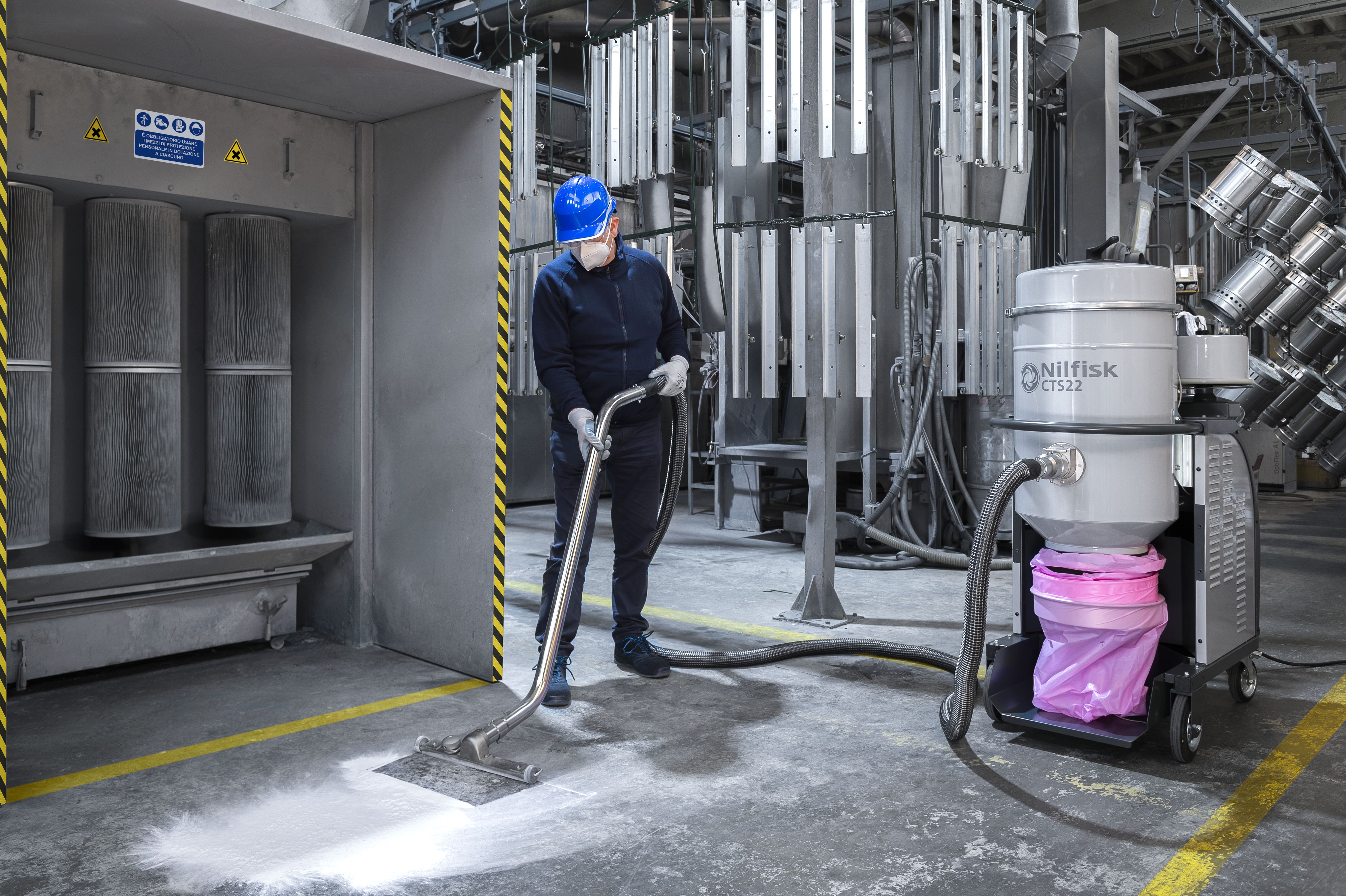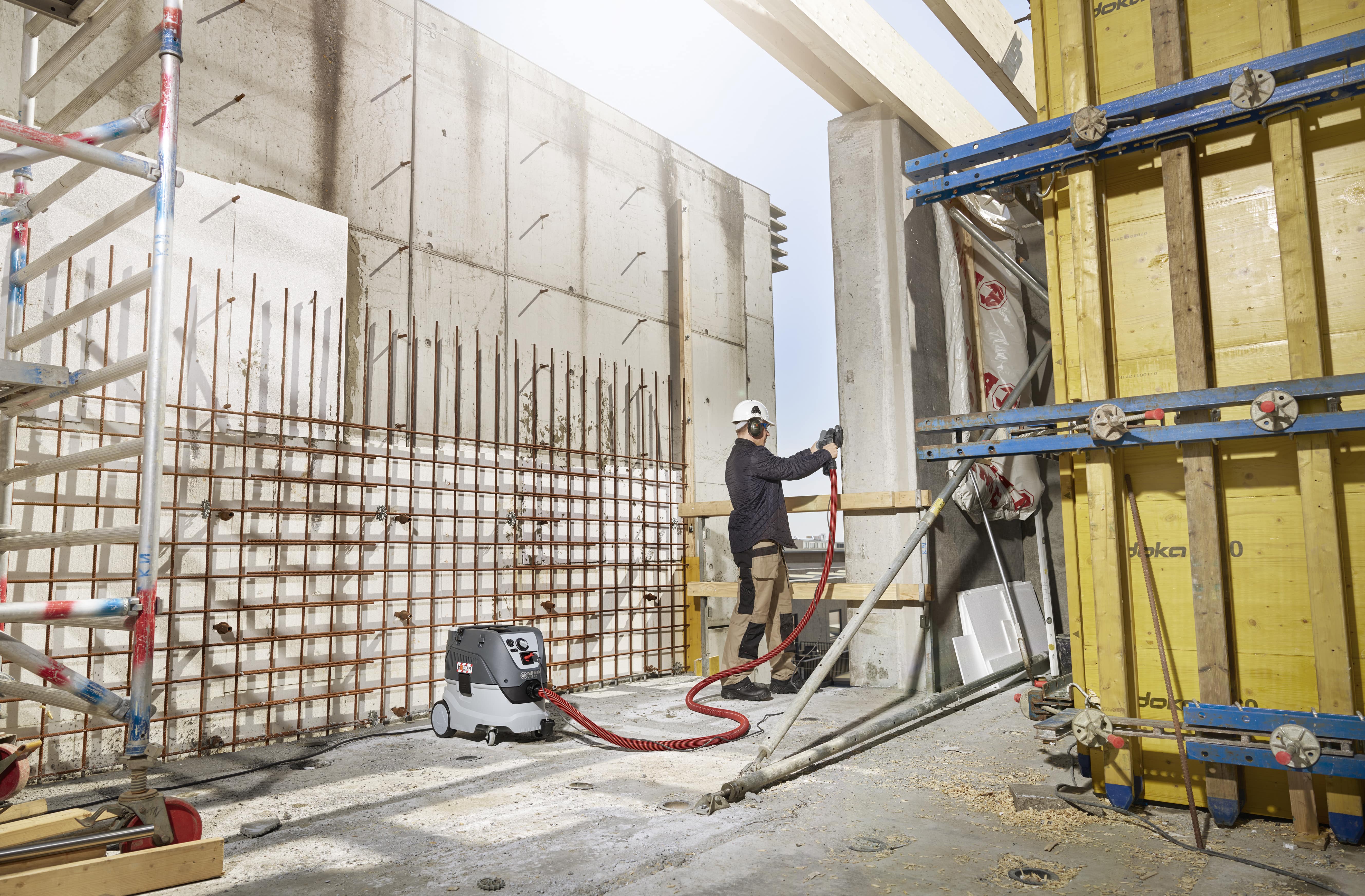Key specifications
Application
At Nilfisk, we know that different industries have different needs when it comes to cleaning. Our three-phase hazardous dust vacuum cleaners are designed to cover a range of sectors including manufacturing, pharmaceuticals, food processing, and the automotive industry.
Flowrate (cubic meter per hour)
Flowrate indicates the volume of air that circulates through a vacuum every hour. The greater the flowrate, the greater a vacuum's suction power and ability to collect debris and contaminants from surfaces and the air.
Power
Nilfisk industrial vacuum cleaners come with high-performance motors for enhanced suction capabilities, enabling more efficient cleaning of large spaces and tough debris.
Explore products
Types of hazardous dust vacuum cleaners

Three phase
Engineered for robust, continuous industrial applications, offering high efficiency and capacity to handle substantial volumes of hazardous dust.

Single phase
Designed for smaller industrial operations, easily installed for efficient dust particle recovery.
Safeguard your workspace from hazardous dust with Nilfisk
When it comes to dealing with hazardous dust, you need a solution you can count on 100% - no employer wants to take a chance on health and safety.
In our experience, it pays to know what you’re dealing with. There are three dust classes that apply here – L, M and H – and they each pose different risks. When you know the class of dust, it’s time to choose a vacuum. All our models are built using filters and systems certified under European standards.
We've also gone the extra mile to develop the industry's first compact industrial vacuum cleaner - so you can work with ease while further safeguarding your health and wellbeing.
Our industrial vacuum cleaners feature state-of-the-art air velocity measurement systems and double-sealed filters to take your cleaning to new levels of professionalism.
We’ve also been working to make our solutions as quiet as possible – for everyone’s sake – with our Aero Safety series our quietest range yet so you or your operators can work with fewer distractions.



